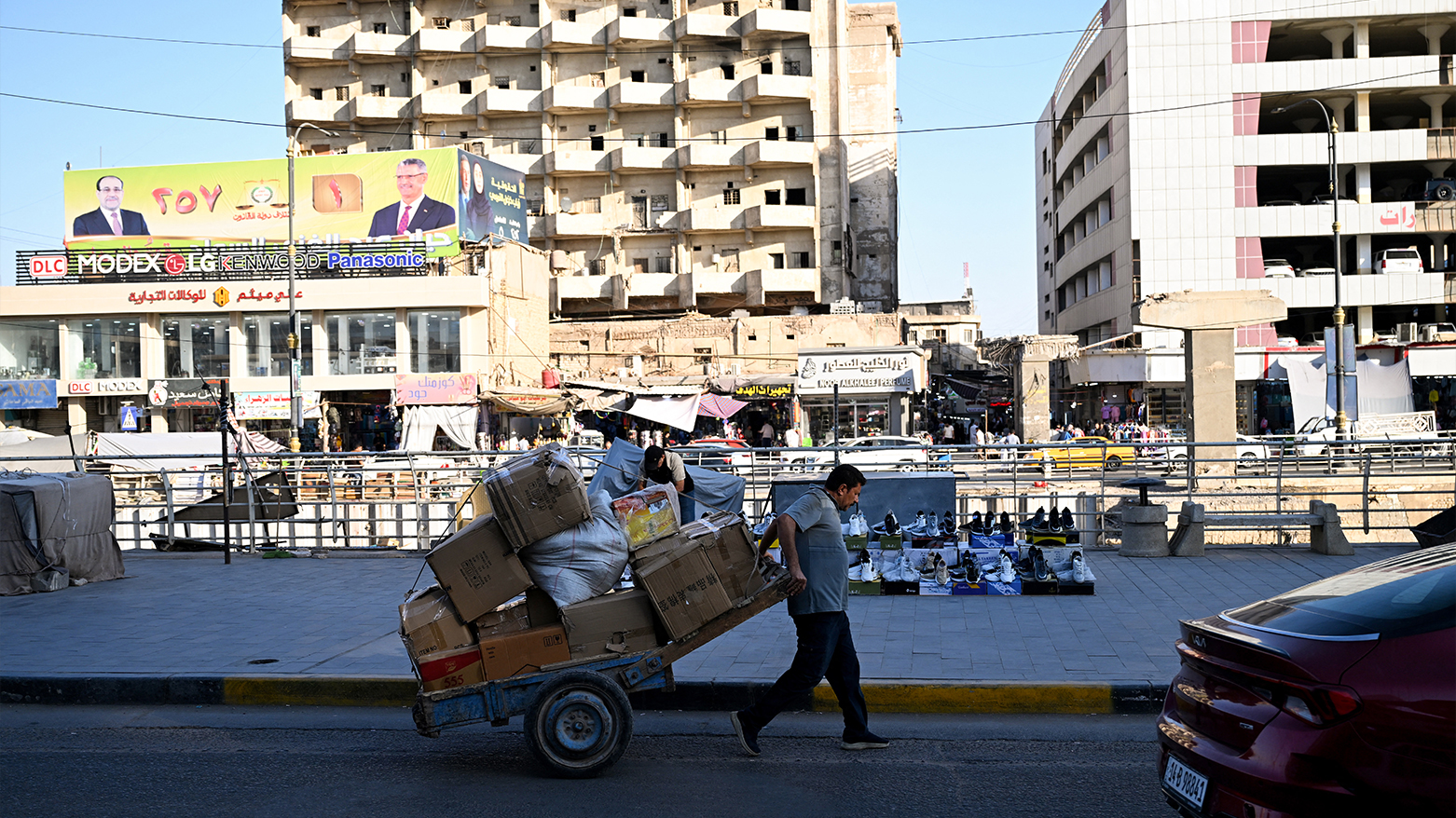
Tara Shwan
Writer
Ideological Influence and the Struggle for Iraq: Why Iran’s Power Persists Beyond U.S. Policy Shifts
Iraq’s sovereignty remains caught between U.S. and Iranian influence. True independence, the author argues, requires reform, civic unity, and Iraqis defining sovereignty on their own terms.

By Tara Shwan,
Executive Director,
American-Kurdish Economic Institute, AKEI
Since the U.S.-led invasion of Iraq in 2003, the country has stood at the center of a shifting geopolitical dynamic shaped by American intervention and Iran’s deep-rooted influence. Over the past two decades, Washington’s strategy, under both Republican and Democratic administrations, has sought to help Iraq assert its sovereignty and limit external interference. Yet despite extensive investments in military, diplomatic, and reconstruction efforts, Iran’s leverage has remained remarkably resilient, shaping Iraq’s politics, security, and identity in ways that continue to challenge U.S. policymakers and Iraqi reformers alike.
From President George W. Bush’s attempt to build a democratic Iraq after Saddam Hussein’s fall, through Barack Obama’s cautious withdrawal and re-engagement, to Donald Trump’s “maximum pressure” campaign and the Biden administration’s efforts to stabilize the country, the United States has pursued a consistent goal: supporting an independent Iraq capable of governing itself free from outside control. But these efforts have been repeatedly undercut by the structural realities that emerged after 2003. The power-sharing system designed to reflect Iraq’s diversity instead entrenched sectarian divisions and empowered parties and leaders with longstanding ties to Iran. Many of Iraq’s Shi’a political elites spent years in exile in Iran during the 1980s and 1990s, where they developed enduring religious and ideological bonds that continue to shape their worldview and loyalties.
These connections were not merely transactional; they were forged through shared struggle and belief. They produced a generation of Iraqi leaders for whom affinity with Iran is grounded in faith and identity rather than financial or political dependence. This makes Tehran’s influence in Iraq fundamentally different from the forms of power the United States exercises, it is embedded not just in political structures, but in the ideological fabric of the post-2003 Iraqi state.
Iran’s strength in Iraq does not rely on wealth, military dominance, or coercion. Rather, it stems from its ability to shape narratives and identities through religious institutions, clerical networks, education, and shared historical experience. Connections between the seminaries of Qom and Najaf extend beyond theology; they form part of an intellectual and spiritual network that reinforces Iran’s legitimacy among segments of Iraq’s Shi’a population. Through cultural outreach, religious education, media influence, and political patronage, Tehran has cultivated a multidimensional presence that extends deep into Iraqi society. Its influence endures not through force but through belief, an ideological presence that presents itself as the guardian of Shi’a rights, resistance to Western domination, and the protector of moral and religious integrity. For many Iraqis disillusioned by corruption and dysfunction at home, this narrative carries an undeniable resonance.
Iraq’s challenge, however, is not about choosing between Tehran and Washington; it is about defining what sovereignty truly means in a region where external powers, regional and global, seek to shape its future. Successive governments have tried to balance these relationships, relying on U.S. economic and security assistance while maintaining close ties with Iran to preserve domestic stability. Yet this balancing act has come at a high cost. The sectarian quota system (muhasasa) designed to ensure representation has instead institutionalized division and corruption, allowing foreign actors to exploit Iraq’s internal fragmentation. Through proxies, political allies, and patronage networks, Iran has secured influence over key ministries, armed groups, and decision-making processes.
The result is a political system that often struggles to act in the national interest. Many Iraqis now see their leaders as representatives of external agendas rather than their own people, fueling widespread disillusionment and waves of protest, especially among the youth. For the United States and other international partners, this reality highlights the limits of traditional policy tools. Military intervention, sanctions, and diplomatic pressure cannot by themselves weaken Tehran’s entrenched role. Real change depends on strengthening Iraq’s own institutions, empowering civil society, and fostering a civic national identity that transcends sectarian and ideological divides.
Investing in education, governance reform, and job creation may seem gradual, but these are the foundations for reducing Iraq’s vulnerability to external manipulation. The youth-led protest movements that have emerged since 2019 reveal a vital social shift: a generation demanding accountability, reform, and freedom from all foreign interference. These Iraqis identify less with sectarian or ideological labels and more with a shared sense of national dignity. Supporting this transformation offers the most sustainable path toward an Iraq defined by sovereignty rather than alignment.
Reclaiming sovereignty, however, will require more than rhetoric. Iraq’s leadership must pursue genuine institutional reform, reducing corruption, curbing militia power, and upholding the rule of law. A sovereign Iraq should engage with both the United States and Iran on terms of equality, not dependency. Although Tehran’s influence runs deep, it is not boundless. Iran faces internal economic strain, domestic unrest, and growing regional challenges. Its model of influence, built on ideological solidarity and proxy networks, may not endure if Iraq continues to evolve politically and socially. The more Iraqis demand transparency and reform, the harder it becomes for any outside power to dominate through ideology or patronage.
Ultimately, the struggle over Iraq’s future is not a contest between two powers, but a deeper struggle over identity, ideology, and the meaning of independence. Iran’s influence persists not because of superior strength but because it has become intertwined with Iraq’s political and religious identity. Undoing that influence requires more than counter pressure, it demands that Iraq define sovereignty on its own terms. The country’s future will not be decided in Washington or Tehran, but in Baghdad, Basra, and Najaf, by the will of its people and their determination to build a state that finally stands for itself.
The views expressed in this article are those of the author and do not necessarily reflect the views of Kurdistan24.